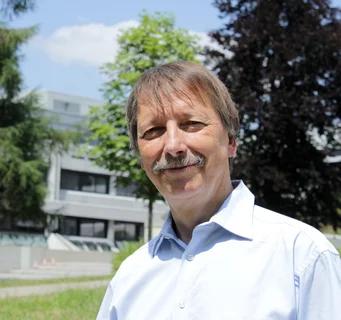Prof. Dr. Thomas Henning, Director of the Planet and Star Formation (PSF) Department at the Max Planck Institute for Astronomy (MPIA) in Heidelberg, Germany, will receive the prestigious Karl Schwarzschild Medal of the German Astronomical Society (AG). The important award will be presented to him on September 12, 2023, during the annual meeting of the German Astronomical Society in Berlin.

The Karl Schwarzschild Medal of the German Astronomical Society is considered one of the highest awards for astronomy in Germany. It is named after the famous astronomer Karl Schwarzschild (1873-1916), who is one of the pioneers of modern astrophysics. With the Karl Schwarzschild Medal, the AG has been honoring high-ranking scientists from all over the world since 1959, who have sustainably enriched and influenced research in astronomy and astrophysics. The award winners list includes such prominent names as Maarten Schmidt, Jan Oort, Martin Rees, Fred Hoyle, or Jocelyn Bell Burnell.
The German Astronomical Society´s press release and tribute published today states:
“Professor Thomas Henning, director at the Max Planck Institute for Astronomy (MPIA) in Heidelberg, receives the most prestigious award of the German Astronomical Society, the Karl Schwarzschild Medal, for his outstanding contributions in the field of star and planet formation. His broad research profile is reflected in his theoretical work, laboratory experiments, observational studies, and numerous collaborations. Furthermore, he uniquely combined studies of dust formation in the interstellar medium with laboratory experiments. With his team, he built instruments for Earth-based telescopes and infrared instruments for space, including JWST. His achievements range from impressive observations of protoplanetary disks and their structure to the discovery of young planets in the disks around stars”.
Thomas Henning has been director at the Max Planck Institute for Astronomy in Heidelberg since 2001, where he heads the Planet and Star Formation (PSF) department. In addition, he leads a laboratory astrophysics group in Jena – the place where he also received his PhD and was later director of the Astrophysical Institute and the University Observatory before he received the call of the Max Planck Society (MPG) to Heidelberg.
In addition to the focus of his work around the formation of massive stars, planet-forming disks, exoplanets, the interstellar medium, and instrument development already indicated in the AG’s appreciation, Thomas Henning also launched the Heidelberg Initiative for the Origins of Life (HIFOL) in 2014. This initiative seeks to understand one of humanity’s most fundamental questions: How did life arise on Earth and does life exist elsewhere in the universe? In the context of this research, Thomas Henning has recently also started up new research laboratories at the MPIA in Heidelberg.
With the Karl Schwarzschild Medal, Thomas Henning is not only honored by one of the oldest astronomical associations in the European area. Since the AG was founded in Heidelberg in 1863, its most important award also returns once again to the place where the AG was founded.
Our humans need coffee too! Your support is highly appreciated, thank you!


